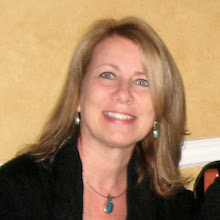
Yesterday, hiking around Alder Lake in the Catskill Mountains of Ulster County, New York, my younger daughter and I (and her malamute) were treated to this serene and glittering scene with that dark finger of shadow pointing at the center. The image matched a quote I had found a couple days earlier, while skimming through
The Harper Book of Quotations:
Happiness is the light on the water. The water is cold and dark and deep.
-- William MaxwellPang.
On the way home, I drove toward the full moon -- bright gold, huge, balanced low on the horizon. At one point, a black band of clouds bisected it, then wafted off, like an unveiling. I was listening to Bob Dylan's
Blood on the Tracks. Have you ever noticed how, on rare occasion, lyrics and song mood magically match your own setting and state? I felt dreamy and pensive; I was reliving the past while admiring the sky and the indigo hills. As I cruised along, mesmerized by the shifting lunar show, "If You See Her, Say Hello" came on:
Sundown, yellow moon, I replay the pastI know every scene by heart, it all went by so fast ...-- Bob DylanThis particular old "album" plays like a collection of flash fiction and prose poetry. For example, read this vivid scene from "Idiot Wind":
I woke up on the roadside, daydreamin' 'bout the way things sometimes are
Visions of your chestnut mare shoot through my head and are makin' me see stars.
You hurt the ones that I love best and cover up the truth with lies.
One day you'll be in the ditch, flies buzzin' around your eyes,
Blood on your saddle.
Or how about these lines from later in the same song:
I been double-crossed now for the very last time and now I'm finally free,
I kissed goodbye the howling beast on the borderline which separated you from me.
The songs get inside your ribcage and tangle your heartstrings. I don't ever tire of certain pieces, of that knotting sensation that wakes, pains, and pleases the heart.
The initial quote was found on page 194 of The Harper Book of Quotations (Third Edition), edited by Robert I. Fitzhenry and published by HarperPerennial.
 I had to walk backward to take a second look at this "ear" emerging from the earth. Roots, listening.
I had to walk backward to take a second look at this "ear" emerging from the earth. Roots, listening.






